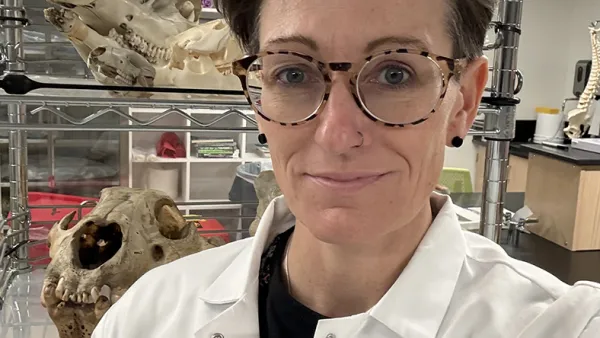My name is Ellie Sapiro and I’m currently a junior double majoring in Biology on the Neuroscience track and Global Health.

I have been working on a project that investigates the role of circadian genes in pregnancy. Prior research in the Herzog Lab has demonstrated that circadian chronotype, or the time an individual wakes up, shifts earlier during pregnancy for both women and mice. The question I am exploring is whether the mother’s genotype determines gestational length and time of delivery during a 24-hour period. To test this, I have been analyzing data from pregnant mice of seven genotypes. There are genotypes where the circadian period is shorter or longer than 24 hours, and where the uterus has a different circadian period from the rest of the mother. This allows us to investigate whether specific circadian phenotypes are associated with birth timing and if the uterus has a role. We track gestational length from the time of a vaginal plug, which signifies the mother is pregnant, until the moment the first pup is separated from the mother. I have also been helping with imaging studies that track circadian gene expression in the uterus in both pregnant and nonpregnant mice. We have been using luciferin, a bioluminescent reporter, to quantify gene expression at different times of day and investigate the role of circadian genes during pregnancy.
The time I’ve spent in the Herzog Lab has helped me cultivate my interests in biological research. My Bio 500 mentors are genuinely devoted to the success of undergraduates in the lab and have created a wonderful learning environment. I have learned more about the scientific method and developed a deep curiosity for how important biological clocks are in physiological processes, as well as in everyday life.




